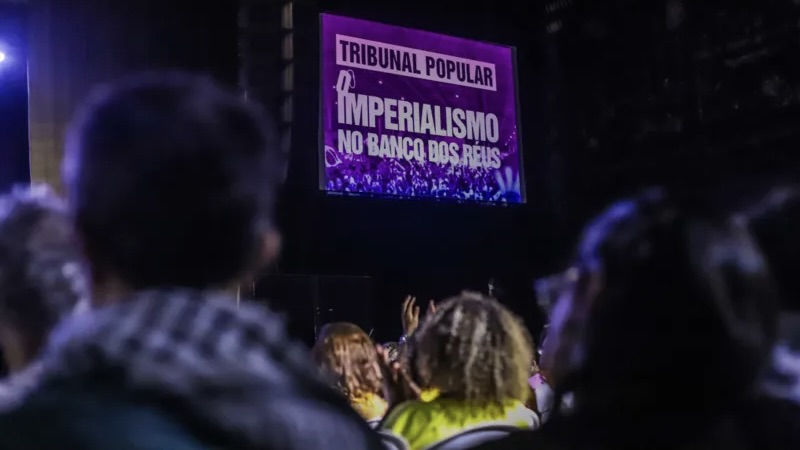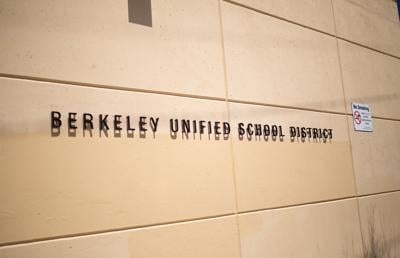People’s Tribunal Condemns Imperialism for Global Injustices and Racism
Tribunal Against Empire: Highlighting Global Injustices and Racism
In a world where the voices of the oppressed often go unheard, there comes a moment when those voices gather strength and demand to be recognized. Recently, a significant event unfolded that brought to light the grim realities of imperialism and the many injustices attached to it. Enter the People’s Tribunal—a platform providing a stage for marginalized communities to share their stories and experiences. This gathering did not simply aim to shed light on injustices; it vehemently condemned imperialism as a driving force behind global inequalities and racism.
Understanding the People’s Tribunal
The People’s Tribunal acts as a courtroom without boundaries, a space where the stories of the oppressed are told and validated. It serves as a crucial medium for raising awareness about issues often glossed over by mainstream media. In this instance, the tribunal focused on the injustices stemming from imperialism, emphasizing how colonial legacies continue to shape current global dynamics, leading to systemic racism and economic exploitation.
Imagine walking into a room filled with witnesses—people who have seen the harsh realities of life under imperialist regimes, their riveting testimonies echoing the pain of generations. Each story is a thread, and together, they weave a tapestry that depicts the struggle against oppression. At the tribunal, those threads were pulled taut, showcasing the atrocities committed in the name of power and profit.
The Core Issues Addressed
Imperialism and Its Global Repercussions
Imperialism, by definition, refers to the policy of extending a country’s power and influence through colonization, military force, or other forms of dominance. But what does this mean for individuals living under such regimes? Let’s break it down:
- Economic Exploitation: Countries under imperial rule often face massive economic exploitation, where their resources are siphoned off for the benefit of wealthier nations.
- Cultural Erasure: With imperialism comes an attempt to erase local cultures and languages, leading to a homogenized global culture that disregards rich, diverse histories.
- Political Suppression: Nations that stand against imperial whims often face brutal political oppression, stifling dissent and grassroots movements.
These threads of imperialism form a choking noose around nations, limiting their potential and trapping them in an endless cycle of subjugation.
Racism: A Consequence of Imperial Legacy
Racism is deeply intertwined with imperialism, as the latter laid the groundwork for systemic racial hierarchies. The tribunal aimed to spotlight the ties between colonial history and present-day racism:
- Stereotyping: Imperial powers often perpetuated stereotypes to justify their dominance, painting entire races as inferior or uncivilized.
- Institutional Racism: The remnants of colonial administrations continue to exist in modern institutions, influencing laws and practices that marginalize specific racial groups.
- Continuing Marginalization: Groups that suffered under imperial rule often still face discrimination today, resulting in social imbalance and inequity.
The testimonies during the tribunal painted a vivid picture of how these ancient scars remain fresh, impacting generations and influencing their struggles for justice and equality.
The Broader Impact of the Tribunal
While the People’s Tribunal specifically addressed imperialism, its impacts reach far beyond this single focus. Here are some key takeaways:
A Platform for the Voiceless
The tribunal offered a space for individuals who have faced discrimination or injustice to share their stories. This not only validates their experiences but fosters solidarity among those who share similar struggles. Imagine standing beside a crowd where everyone can truly understand your pain and resilience. It’s a powerful reminder that no one fights alone.
Catalyst for Change
By documenting and showcasing the testimonies of those affected by imperialism and racism, the tribunal acts as a catalyst for change. Highlighting these injustices can spark movements and inform policy changes. It’s like flicking a switch in a dim room; suddenly, the darkness recedes, and clarity emerges.
Awareness and Education
Such events serve to educate the broader public about the long-term impacts of imperialism and the persistence of racism in contemporary society. When people understand the issues, they’re more likely to engage in discussions, advocate for change, and participate in movements that seek justice.
Driving the Conversation: Next Steps
So, what happens following such a powerful event? It’s crucial for the momentum generated by the tribunal to carry forward. Here are some ways to keep the conversation alive:
Engage in Local Activism
Whether it’s local community organizing, protests, or educational seminars, engaging in activism can take many shapes. Find what resonates with you and your community.
Educate Yourself and Others
Knowledge is a powerful tool. Read up on the history of imperialism, the intricacies of systemic racism, and the stories of those affected. Sharing what you learn with others can help keep the conversation going and inspire collective action.
Support Grassroots Organizations
Many grassroots organizations are dedicated to fighting against the impacts of imperialism and racism. Support them through volunteering, donations, or even simply amplifying their messages on social media.
Advocacy and Policy Change
Stay informed about local and national policies that may perpetuate systemic injustices. Engage with lawmakers, push for change, and advocate for policies that support marginalized communities.
Moving Forward: The Fight Against Injustice
The People’s Tribunal serves not just as a moment in time but as a marching order to address the urgent impacts of imperialism and racism. It’s a call to action—one that demands recognition, justice, and restoration for oppressed communities around the world. It’s essential to remember that every voice matters, and together, they can construct a symphony of change that resonates across borders and generations.
As we look forward, let’s uplift the voices that have been silenced for too long. Let’s engage in conversations that challenge the status quo, instigate curiosity, and drive calls for justice. This is not just the fight of one community; it’s a collective struggle for humanity.
Conclusion
The People’s Tribunal provided a vital platform to address the pressing issues of imperialism and racism in a global context. It showcased the interconnected struggles faced by countless individuals and communities worldwide, draping them in a fabric of solidarity and understanding.
Imperialism may have established long-standing injustices, but it is through collective action and relentless dialogue that we can hope to dismantle these oppressive systems. Remember, it’s not enough to just listen; we must act, advocate, and amplify those unheard voices.
FAQs:
1. What is the People’s Tribunal?
The People’s Tribunal is a platform for marginalized communities to share their experiences and challenge injustices tied to imperialism and systemic racism.
2. How does imperialism continue to affect countries today?
Imperialism leads to ongoing economic exploitation, cultural erasure, and political suppression, continuing to impact nations and their people.
3. Why is addressing racism important in this context?
Racism is often a product of imperialism, and understanding its roots is essential for dismantling systemic inequities and promoting social justice.
4. How can individuals contribute to the fight against imperialism and racism?
Engaging in local activism, educating oneself and others, supporting grassroots organizations, and advocating for policy changes are essential steps individuals can take.
5. What are some examples of grassroots organizations focused on these issues?
Organizations like Black Lives Matter, International Socialist Organization, and many local community groups work tirelessly to combat the impacts of imperialism and racism.







